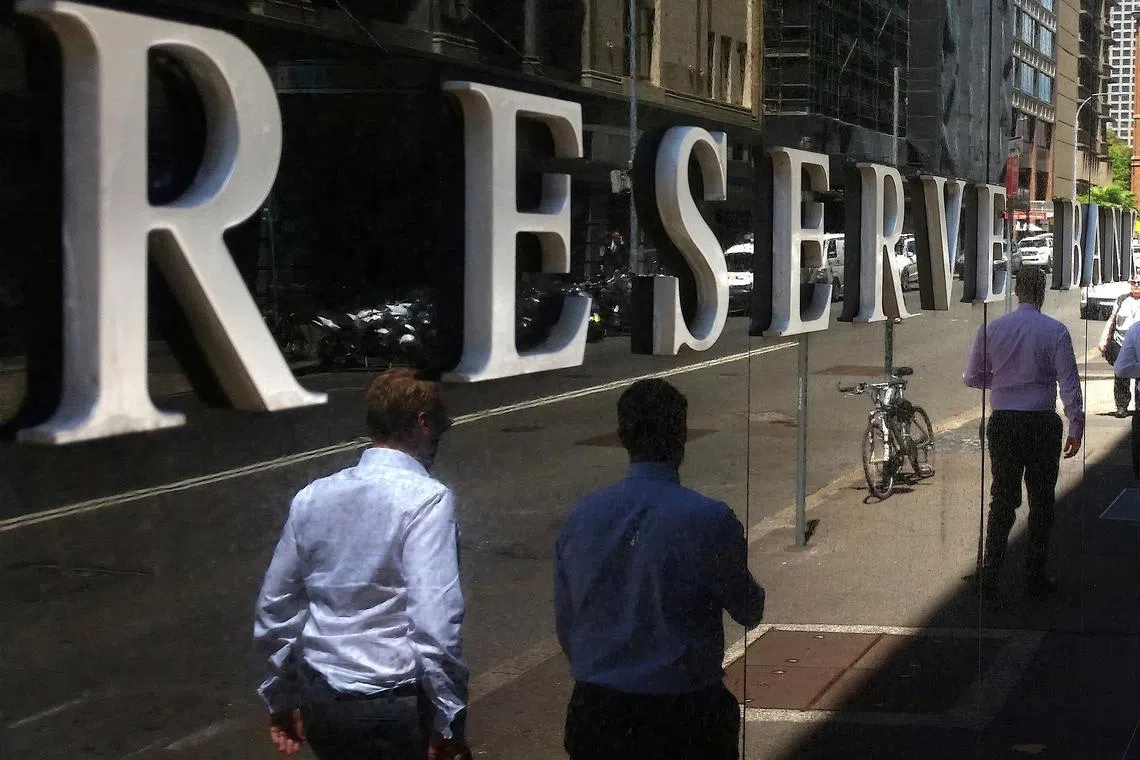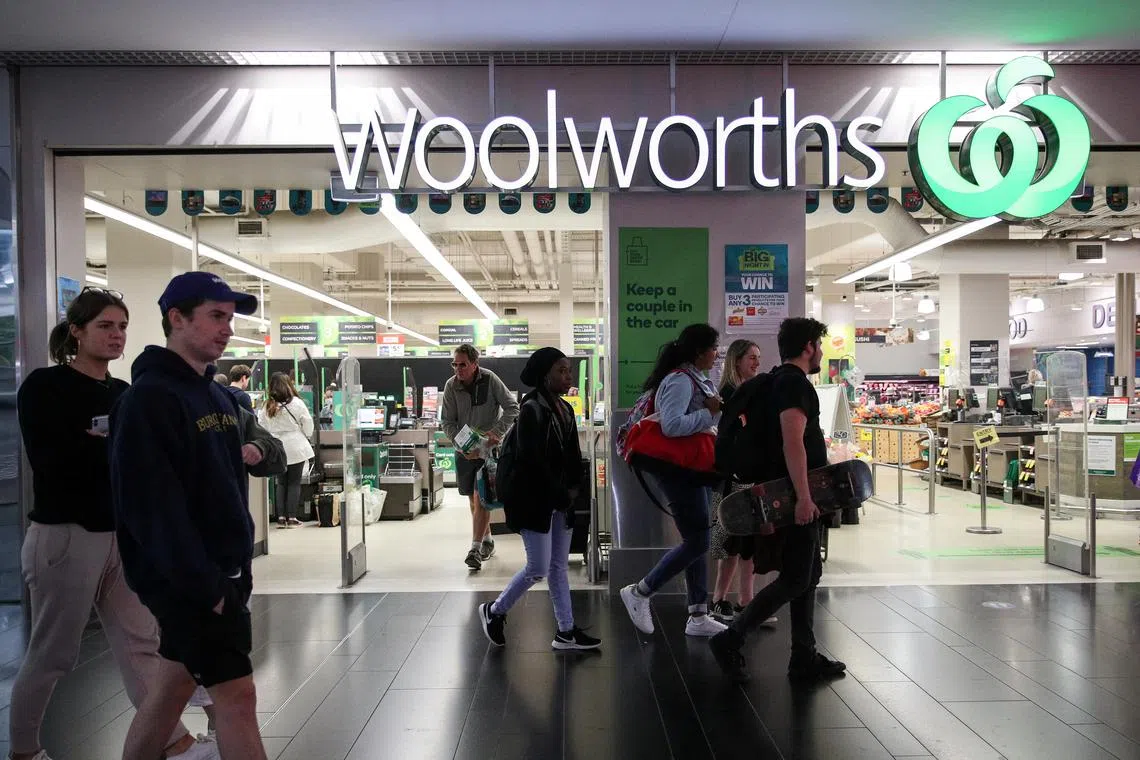Australian central bank boss under fire amid growing economic worries
Sign up now: Get insights on Asia's fast-moving developments

Since May last year, the bank has lifted interest rates from a record low of 0.1 per cent to 3.35 per cent.
PHOTO: REUTERS
SYDNEY – For decades, Australia’s central bank has been one of the country’s most venerated institutions, credited with helping to steer the country through its extraordinary era of growth.
But the bank – the Reserve Bank of Australia (RBA) – is now coming under fierce attack, including calls from MPs for the sacking of its head, Dr Philip Lowe, over a series of apparent missteps.
The bank has been blamed for being too slow to act as inflation began rising in the country, and for then overcompensating with massive interest rate hikes that could push the economy into a recession.
Since May 2022, the bank has lifted interest rates from a record low of 0.1 per cent to 3.35 per cent – the quickest rise in decades.
In particular, Dr Lowe – the mild-mannered governor of the bank – has ignited intense public criticism over guidance during the Covid-19-related economic slowdown that interest rates would remain at record lows until 2024.
This prompted households to take on heavy debt, but many are now facing massive hikes in their repayments due to the soaring interest rates.
As a result, Dr Lowe, who has worked at the RBA since 1980 and completed an economics doctorate at the Massachusetts Institute of Technology, has faced growing questions about his future, including from members of the ruling Labor Party who believe his seven-year term should not be extended when it expires in September.
Dr Lowe will on Wednesday appear before a highly anticipated parliamentary committee, where he will be grilled by MPs over his performance, including the recent rate rises.
The pressure has intensified after the RBA last week gave hawkish signals that it intended to persist with further rate rises.
Dr Lowe’s testimony is set to receive nationwide attention and will not only shed light on the future of the economy, but on his own future as bank governor.
The Treasurer of Australia, Dr Jim Chalmers, said on Sunday that he would not comment on Dr Lowe’s performance and refused to say whether he will extend the governor’s term.
“He’s got a hard job to do,” Dr Chalmers told ABC News.
“He’s got to balance getting on top of this inflation challenge without crunching the economy... I’m not going to second-guess the Reserve Bank governor.”
The RBA is a somewhat cloistered institution that has been jokingly likened to the Vatican, particularly because it avoids the limelight before pronouncing its latest decision on interest rates at 2.30pm on the first Tuesday of each month.
But the sudden spotlight on the bank – including paparazzi-style photographs of Dr Lowe outside his home in Sydney – reflects growing anxieties in Australia about the health of the economy.
Soaring property prices have left Australia with one of the world’s highest levels of household debt, but many homeowners have become accustomed to low interest rates.
Between 2010 and 2022, interest rates did not rise, meaning many property owners – until last year – had never experienced increases in their mortgage repayments.
And, until the Covid-19 pandemic, Australia had experienced almost 30 years of consecutive growth.
Dr Lowe has expressed regret over his indications that rates would not rise before 2024. “I think looking back, we would have chosen different language,” he told a parliamentary committee in November.
But he has also been criticised over the bank’s refusal to lower rates before the pandemic, a decision that some analysts believe led to 250,000 fewer jobs being created.
The scrutiny on Dr Lowe has added to calls to overhaul the central bank.
Meanwhile, the federal government has ordered an independent review of the bank – the first such review in 40 years – with a report due in March.

Until the pandemic, Australia had experienced almost 30 years of consecutive growth.
PHOTO: REUTERS
The review is likely to call for the bank to be more transparent about its decision-making.
It may also call for the bank’s board to include more diverse members, such as a trade union member.
There is also growing concern about the fundamental role of the RBA in the economy.
Analysts are increasingly asking whether the best way to manage the economy is through reliance on the RBA’s decisions on interest rates, rather than other economic levers such as changing taxation rates or requiring compulsory retirement savings.
“The way we use interest rates to control inflation is socially destructive, unfair and inefficient,” wrote business reporter Gareth Hutchens on the ABC News website. “Why don’t we allow ourselves to think more creatively and consider alternative ways to tackle inflation?”



